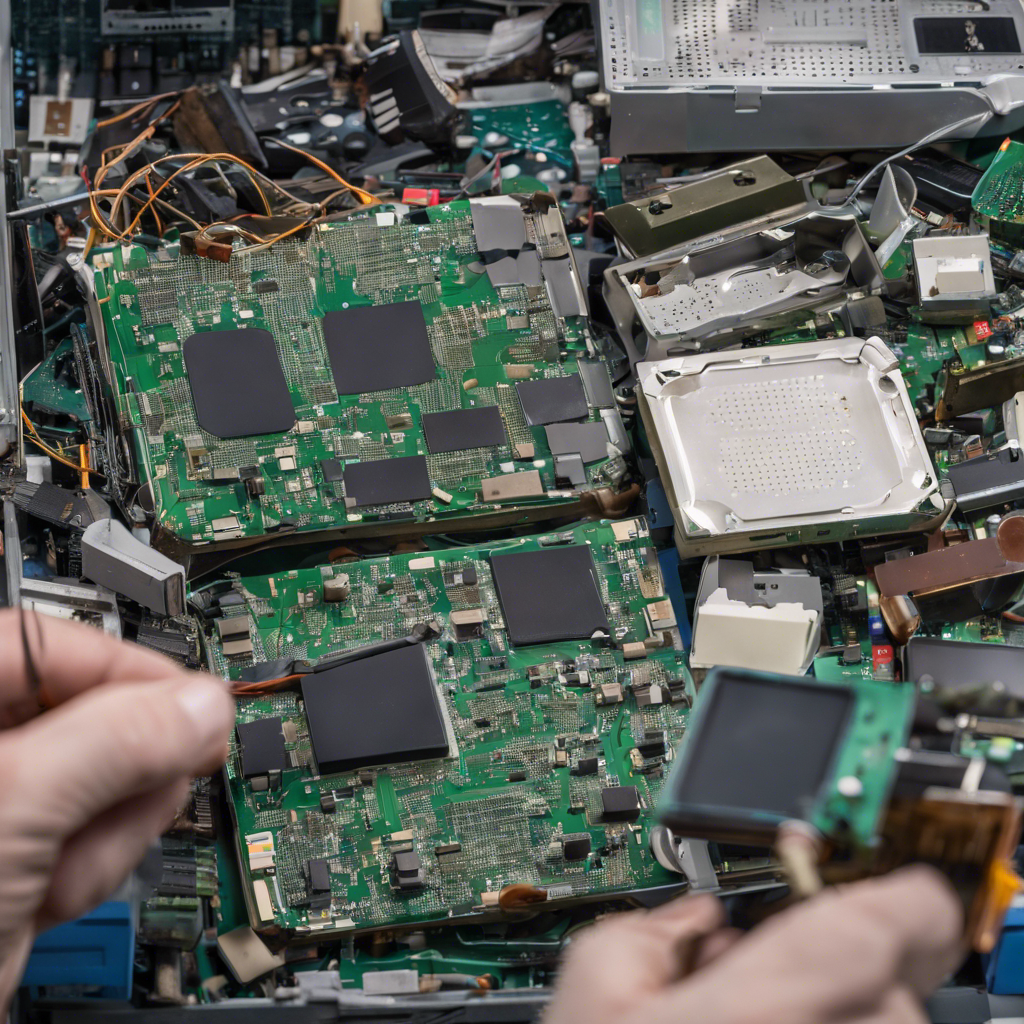Maine Legislation Aims to Improve Electronics Repairability and Reduce Electronic Waste

Proposed repair scoring system could empower consumers and promote sustainability
When our electronics break, the barriers to repairing them can be frustrating and costly. Manufacturers often make it difficult to fix devices by using glue instead of screws, withholding repair instructions, and not selling spare parts. This intentional design choice drives up repair costs and contributes to the growing problem of electronic waste. In response to these concerns, Representative Lydia Crafts from Maine is introducing legislation that would require electronics manufacturers to display a repair score, informing consumers about the repairability of their products. This article explores the potential impact of this legislation on Maine and the wider electronics industry.
The Need for Repair Scores
Mainers, like consumers across the country, deserve transparency when it comes to the repairability of their electronics. Many individuals have experienced the frustration of being unable to repair their devices easily or affordably. To address this issue, Representative Crafts has joined legislators from 27 other states in calling on the Federal Trade Commission to introduce repair scores. These scores would provide consumers with vital information about the repairability of products before making a purchase.
Maine’s Proposed Legislation
Recognizing the urgency of the issue, Representative Crafts is taking proactive steps to address the lack of repairability information in the market. Her proposed legislation would require electronics manufacturers to display a repair score ranging from zero to 10. This score would consider factors such as ease of disassembly, availability of spare parts, and access to repair documentation. By implementing this system, Maine aims to empower consumers to make more informed purchasing decisions and encourage manufacturers to prioritize repairability.
Success of Repair Scores in France
France has already implemented a similar repair scoring system, which has yielded positive results. Companies like Amazon now display repair scores next to certain electronic devices sold in the country. The of repair scores has not only influenced consumer behavior but has also prompted manufacturers to improve the repairability of their products. Samsung’s research in France found that 86% of surveyed consumers reported that repair scores impacted their purchasing decisions. This success demonstrates the potential impact of repair scores on consumer choices and industry practices.
Economic and Environmental Benefits
The adoption of repair scores in Maine could lead the state to become a leader in repairability, benefiting both consumers and manufacturers. Research from the U.S. Public Interest Research Group suggests that families could save an average of $382 per year by opting to repair rather than replace their technology. Additionally, the implementation of repair scores has shown an increase in the repairability of phones and laptops. This shift towards repairable products not only saves consumers money but also contributes to a more sustainable future.
Promoting Sustainability and Reducing Electronic Waste
Electronic waste is now the fastest-growing part of the domestic municipal waste stream, with significant environmental consequences. Only 17% of e-waste is appropriately recycled globally, leading to the accumulation of millions of metric tons of electronic waste each year. By promoting repairability and reducing the cycle of consumption and waste, repair scores can contribute to a greener and more resilient future. This legislation aligns with the growing global focus on sustainability and encourages manufacturers to prioritize environmentally responsible practices.
Conclusion:
Maine’s proposed legislation to introduce repair scores for electronics aims to empower consumers, promote sustainability, and reduce electronic waste. By providing clear and concise information about the repairability of products, consumers can make more informed purchasing decisions. The success of repair scores in France demonstrates their potential impact on consumer behavior and industry practices. If passed, this legislation could position Maine as a leader in repairability and contribute to a more sustainable future for both the state and the wider electronics industry.

